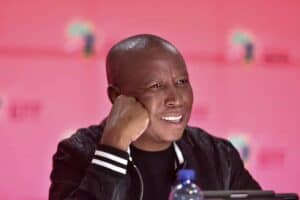State-owned entity Denel's mechanics remaining unutilised, in favour of 'downright useless' Cubans, isn't the first time SA has spent millions on imported labour.

The South African government’s R1.6 billion splurge on Cuban mechanics for the SA National Defence Force (SANDF), while cash-strapped Denel’s vehicle systems capabilities lay idle, has been slated as stupid, silly and bizarre.
Unlike the expertise and fit-for-purpose approach of Denel’s Vehicle Systems (DVS) mechanics, defence analyst Helmoed Romer-Heitman described the Cuban mechanics’ approach as “basic and downright useless”.
ALSO READ: SA defence forces spends R1 billion on Cuban service providers, says DA
“Effectively the vehicles they worked on cannot be used. The then SA Defence Force used conscripts they trained for six months to be mechanics and they did a terrific job under terrible conditions. Why we are not doing the same boggles the mind,” he said.
This effectively means Cuba is paid for its military mechanics to service SANDF vehicles and train local mechanics.
‘Plain silly and stupid’
Minister of Defence, Nosiviwe Mapisa-Nqakula, has revealed that R6 million was spent when Project Thusano started in 2015-2016, with the figure rapidly increasing to R144 million in 2016-2017, R163 million in 2017-2018, and R261 million in 2018-2019.
The SANDF has defended the project, saying it has saved the country R2.1 billion over the contract period with the added benefit of developing essential skills but Romer-Heitman said the project made no sense.
“Well, government says local companies were defrauding defence but why not inspect the vehicles first and take them to court? Also, any truck workshop can do the job. Why not go to the townships, get young people to train for six months and let them do the job? Denel mechanics are sitting doing nothing. It is plain silly and stupid,” he charged.
ALSO READ: Unpaid Denel workers killing themselves, living out of their cars
Revelations about the spending on Project Thusano, a partnership between the SANDF and Cuba to “create a sustainable system of transport for the SANDF”, comes in the backdrop of reports that DVS workshops in Benoni stood empty and haemorrhaged skilled workers.
Michelle Clarke, the Democratic Alliance’s (DA’s) spokesperson on public enterprises, visited the Denel plant in April and said three DVS divisions responsible for armoured vehicles, which once boasted 1200 highly skilled staff, now had a mere 200 people being paid half their salaries.
The Organisation Undoing Tax Abuse (Outa) was outraged by Project Thusano and called for it to be scrapped and the Cuban mechanics sent packing.
The organisation’s head, Wayne Duvenage, said it was diabolical and pure madness that SA spent millions on Cuban mechanics when there were so many local unemployed mechanics.
ALSO READ: Govt to oppose Solidarit;s Cuban engineers court application
“The question now should be where else are the Cubans, in what departments, and doing what, because they seem to be popping up everywhere. It was doctors when our doctors had no work, then it was engineers and now mechanics. Are we now an employment agency for Cuba?,” he asked.
Cuba: A bottomless pit for SA taxpayers
Outa said South Africans acknowledged the immense role played by the Cubans in undoing apartheid, but for a country to overlook its own citizens in favour of foreign workforce, was inexplicable.
- In 2008, South Africa wrote off R900 million of debt owed by Cuba, with a further R1.1 billion in debt written off two years later and gave the Caribbean island guarantees and aid worth hundreds of millions of rands.
- In November, The Citizen revealed how the Free State province’s Cuban Technical Advisers programme, which has cost more than R80 million since its inception six years ago, has apparently collapsed, with only three of the 37 Cuban engineers still in the country. The engineers were welcomed with pomp during a ceremony that cost the taxpayer R500,000.
- In 2011, in a project pioneered by Nkosazana Dlamini-Zuma, then home affairs minister, SA reportedly imported 30 Cuban immigration specialists to train local cadets. The cost of the project was never made public.
- SA spends millions of rands each year training SA doctors in Cuba, though the annual cost of training in Cuba was R331,000, more than double the cost at a local medical school, which is R150,000. The students spend six years training in Cuba, which includes a year of learning Spanish, and need to spend another year finalising their training at a SA medical school. This means that the full cost to train a doctor on the Cuban programme amounts to about R2,136,000, compared to R900,000 in South Africa in a shorter time.
- When the Covid-19 pandemic struck last year, 187 medical personnel were brought in from Cuba at the cost of about R430 million.
- In January, the SANDF defended its apparently dodgy R200 million acquisition of Interferon Alpha-2B (marketed as Heberon) from Cuba to fight the Covid-19 pandemic but lost 40% of the shipment due to improper storage. There was a standoff between the Hawks and the military when the SA Health Products Regulatory Authority (Sahpra) attempted to seize the shipment at the SA Military Health Services in Pretoria.
- Human Settlements Minister Lindiwe Sisulu has been at pains justifying the importing of 24 engineers to assist with water projects at the cost of R65 million, claiming their presence would lead to better living conditions for the majority of South Africans. Trade union Solidarity has, however, taken Sisulu to court over the projects and sent the minister a list of more than 120 “competent and willing” SA engineers who could replace the 24 Cuban engineers.






